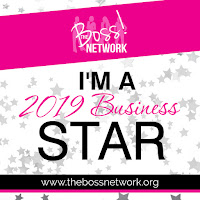The Truth Your Boss is Afraid to Tell You by "BOSS Influencer" Yvette Gavin
A boss once told me, “Yvette, life is not fair.” This was the immediate reply from my boss in 1990 when I expressed my dismay with an average merit increase and another year of being overlooked for directorship. After pleading my case of why I felt my work performance merited more money and a title change, I ended with ‘It isn’t fair,’ and my boss agreed. Her agreement led me to tears. Why? Because I felt I had been mistreated, undervalued, and taken for granted and her comment confirmed it. Even worst, she made no excuse or apology for it. Instead, three weeks later I got a significant merit increase and later a promotion. This victorious win, I wouldn’t realize until years later, wasn’t a win at all. It’s true that I got the money and the new position, but I failed to understand or even ask why I wasn’t initially promoted. Honest feedback would have served me better than a "life is not fair."
Unfortunately, years later at a different company I found myself in the same position—feeling undervalued and overlooked for advanced opportunities. According to research sponsored by American Express, Bloomberg, Deutsche Bank, Ernst & Young, Goldman Sachs, Interpublic Group, Marie Claire, Credit Suisse, and Moody’s Foundations, leaders are often reluctant to give feedback relating to executive presence (EP) to women and minorities. The truth here is that oftentimes, resources who shine in their specific craft are not promoted into higher position because they lack executive presence and senior leaders are reluctant to tell them the truth. I have coached clients who were told that higher positions were out of their reach because they did not have a college degree only to learn after gaining a degree that higher positions were still out of reach.
Without feedback, I realized that I had to make changes if I were to achieve my goals of higher leadership roles, increased income, and a greater level of corporate contribution. Although I wasn’t familiar with the term “executive presence” at that time, I began to employ the behaviors of EP. I achieved my career goals in 2007 before completing my college degree when I became the first Black IT Director at Cbeyond! Looking back, I realize my career trajectory changed because I learned how to lead with what is referred to as executive presence.
Depending on the corporate culture, a resource may need to have a strong handle on all three components of executive presence to even get a promotion to manager which for many companies is the first level of leadership. Research done by the Center for Talent Innovation (CTI) shows that how you look, how you speak and how you act are three critical factors to your success at every step in your career journey.
Back in 1990, I had a lot to learn about my own behavior. I was younger and needed to improve how I managed myself emotionally. Crying in the office under stress and disappointment doesn’t bode well for one’s career. Potential leaders must display the ability to manage and lead themselves before they are capable of managing and leading other people. Trust me on this one: emotionally-led decisions rarely lead to productive actions.
According to the CTI research, “Top jobs often elude women and professionals of color because they lack “executive presence” or underestimate its importance. And they’re simply not getting the guidance they need to acquire it.” I know the truth of this research because I experienced it in my personal life and in my professional life. As an IT Director, I found myself saying to one of my managers who wanted a promotion these words, “you’re not ready.” The hurt in his eyes gave me flashbacks to my own painful journey of understanding that it takes more than being good at what you do to advance into higher positions. The difference is I was willing to tell the resource the truth of why I wasn’t putting him forth for a promotion and then I shared with him specific behaviors he needed to improve.
Noteworthily, the CTI findings also unveiled that EP is elusive for men as well as women because it changes depending on the culture you find yourself in (Google is very different from IBM). Even for entrepreneurs, the lack of executive presence could prevent potential investors from sealing the deal.
Before completing my college degree, I advanced my career to the executive level by leading with executive presence. I am passionate about teaching others how to elevate their careers and achieve their personal goals. I invite you to join me on June 27 for a FREE webinar on the BrightTALK Women in Business channel for a talk on leading with executive presence. Both Men and Women are Welcome! To register, click here.
Learn more about Yvette Gavin:
Website: www.yvettegavin.com
Twitter: @yvettegavin





Comments
Post a Comment